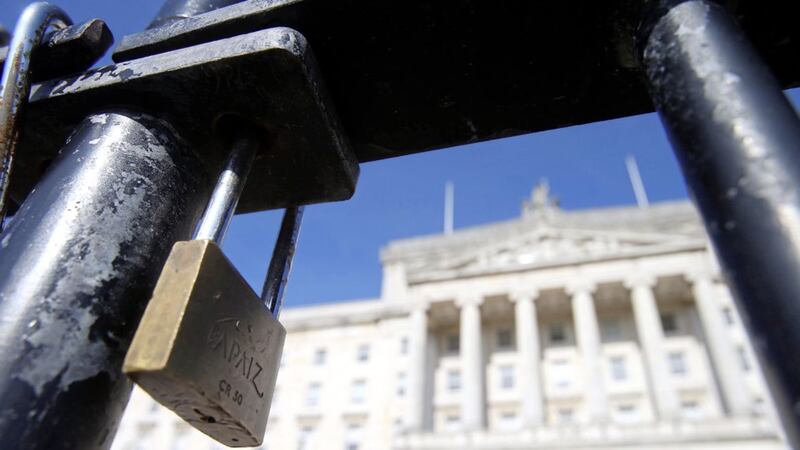From around early 2010, which was about three years after the DUP and Sinn Féin cut their post-St Andrews power-sharing deal, I began writing about the dysfunctionality at the heart of government.
There was clearly no collective responsibility, no collective accountability and no sense of the Programme for Government being a jointly agreed strategy. But, as I noted in a piece in February 2010, 'Why should we expect agreement and collectivity when we have two polar opposites at the heart of government who seem quite content to pursue mutually contradictory agendas?'
By then it had become apparent that the Executive wasn't, in fact, a government: and was never going to morph into a government. It was no more than an administration - with individual ministers running their own departments their own way. Even the ministers from the same parties didn't seem to consult each other very much when it came to overlapping issues.
Worse, it had also become apparent that the backbenchers were reluctant to criticise ministers from other parties in case the fire was turned on their own ministers. I remember telling a UUP minister that it might be worth 'having a go' at a DUP and Sinn Féin minister who seemed to be making a dog's dinner on two key areas of policy: "You're right, Alex. But I don't want them shining the light on my department and putting the boot in."
It was at that point that I realised - although I had always been in favour of it - that there was never going to be proper accountability until there was a fully funded and officially recognised Opposition. That didn't happen for another seven years: and even then it never got a chance to find its feet, because the Assembly collapsed a few months later. And even if the Executive is rebooted it looks as though both the UUP and SDLP will take their seats this time; with the possibility of Alliance being back in justice. So, back to square one.
Read more:
- Karen Bradley's meeting with political parties 'an embarrassing waste of time'
- Analysis: Karen Bradley is constrained by circumstances but also out of her depth (premium)
Anyway, the RHI has done two things. It has confirmed the dysfunctionality that some of us knew was always there; and it has confirmed the suspicion that departments tended to be run as independent silos rather than as part of a collective government with common goals, purpose and direction.
Why is it so bad? Well, we need to remember that in 1998 the vast majority of the key figures in the political parties (and crucially, those who would become ministers and special advisers) and civil service had no experience of devolution. The last devolved government had collapsed in March 1972; and between then and 1998 - with just a few months of the Sunningdale Assembly - we had direct rule. NIO ministers signed off and the civil service implemented. It was, at best, a ticking-over operation, with decisions made, albeit after limited consultation and a lack of detailed analysis or counter-argument.
So, when devolution was officially rebooted in December 1999 it was, as a DUP minister described it to me at the time, "a voyage of discovery for all of us." He was right. Everybody was learning on the job. New ministers. New departments. New permanent secretaries. New scrutiny committees. New advisers. New lobby groups. New staff. New MLAs. New procedures. All of this at the same time as trying to build something that resembled trust between unionism and republicanism: with a DUP which had never signed the Good Friday Agreement and a Sinn Féin which viewed the entire process as a 'transition phase to eventual unity.'
Within a couple of years we were back to direct rule again and it was to be another five years before the 2007 deal. The problem was that not enough lessons had been learned, let alone experience gathered, in the first phase of devolution, so the discussions at St Andrews didn't really focus on potential long term problems for an entirely new form of devolved government.
The evidence from the RHI inquiry leads to the conclusion that an awful lot of bad habits and unsatisfactory practices have become commonplace since 2007. There may be an argument that we're talking about a 'rogue' department; yet I remain of the view that these habits and practices are probably grounded in most of the other departments, too.
All of which means that it would be fundamentally stupid to believe that all would be well if the parties cut a new deal and got back to work again. The problem is far greater than just toxic relationships between the parties. Without a massive overhaul and rethink then collective responsibility, collective accountability, proper opposition, genuine power-sharing, a free-standing civil service (where key figures don't conspire with politicians to cover tracks and block scrutiny) and robust mechanisms for measuring the implementation of the Programme for Government, will be impossible.








